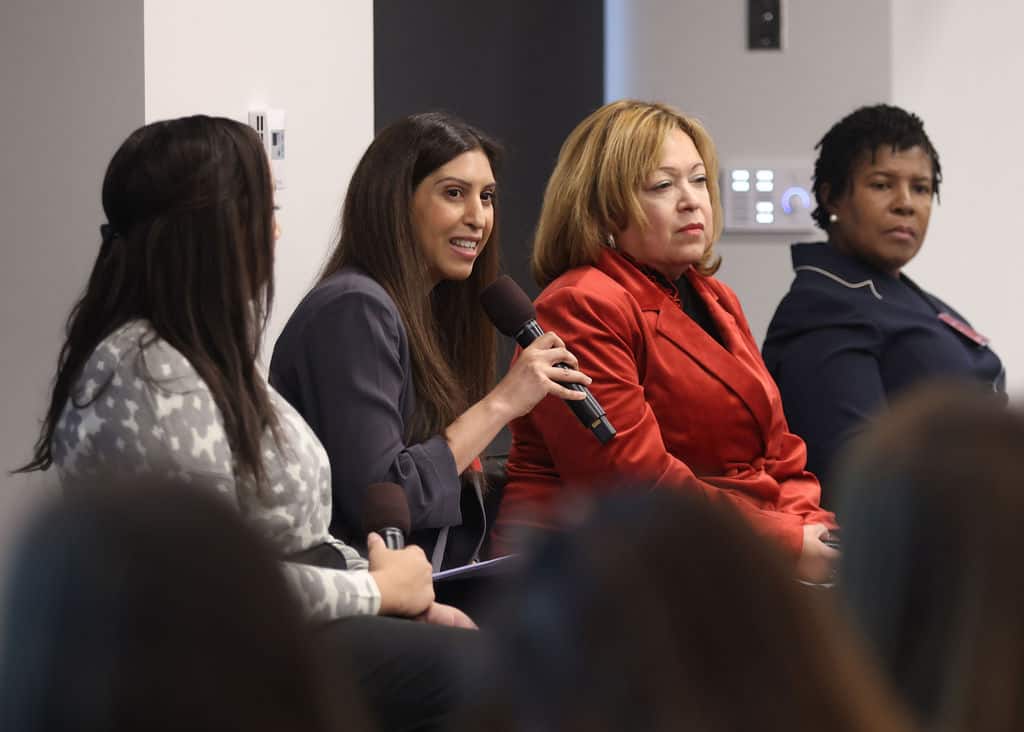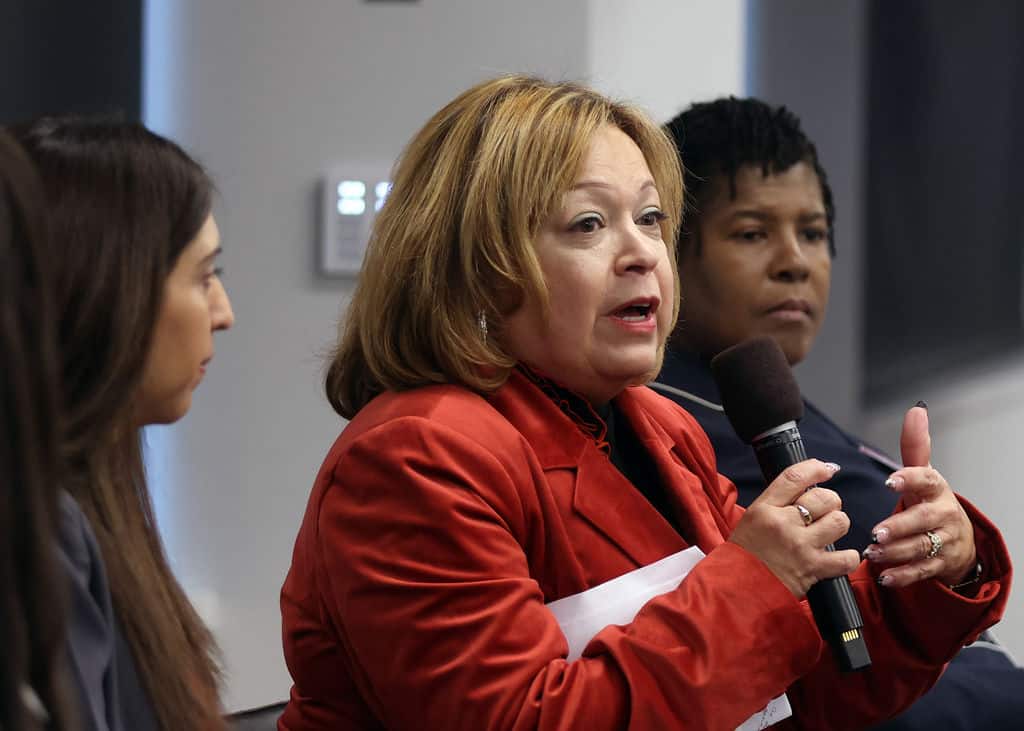
As the ever-changing biotechnology and pharmaceutical landscape continues to evolve and explode with new technology, it is more important than ever to keep the end goal of our work in mind – patient outcomes. The improvement of people’s lives is the overall upshot of all the time, resources, money and brainpower that our industry employs. And we know there’s a long way to go, as patient outcomes remain deeply disparate based on factors like race, ethnicity, geography, socioeconomic status and other identities. For an industry at the forefront of so many breakthroughs, our progress on health equity is simply not sufficient.
One small but illustrative example: cancer rates among Latinos are expected to rise 142% by 2030, but Latinos often represent less than 10% of oncological clinical trial participants. We can’t expect to address significant health challenges if we’re not seeking to bring the groups most impacted by them to the table when it comes to drug development, trials, treatments and more.
How, then, as the ecosystem of companies developing breakthrough treatments and medicines for our communities, can we do our part to center the voices, experiences and health needs of our most disadvantaged patients and make measurable differences in their lives?
Putting Patients First: Health Equity in Drug Development
As part of our Patient Advocacy Summit, we welcomed a diverse panel of some of Massachusetts’ top leaders championing health equity in clinical research and moving the needle towards unbiased patient health outcomes.
Moderna’s Senior Manager of Clinical Trial Diversity & Inclusion Nubia Whitaker moderated our “Putting Patients First: Health Equity in Drug Development” panel, with Dr. Rosa Colon-Kolacko, President and Founder of Global Equity Learning and a Health Equity Compact member; Ann-Marie La Ronde-Richard, Director & Patient Engagement Lead of the Internal Medicine Research Unit at Pfizer; and Rohita Sharma, Global Senior Director in Patient Insights & Solutions at Alexion AstraZeneca Rare Disease speaking to our collective duty to advance health equity in drug development, and defining the steps that need to be taken to do so.
Our ultimate responsibility is just that – putting patients first. As more and more patients expect to be involved in the drug development process, it is our duty to engage them throughout the process with equity top of mind.
In our industry, decisions and priorities that directly impact health outcomes are made based on data, and that data needs to be representative of and responsive to the communities it serves. All of them. When certain communities are not actively involved in the full drug development process, progress is not made with their experiences in mind, nor the slew of health and healthcare challenges that may affect them disproportionately.
The Answer: A Patient-Centric Drug Development Approach
With all this said, how do we imbue equitable patient-centricity into our drug development process? Here are a few key takeaways from the conversation.
Engaging Patients Throughout Entire Process
For the panelists, connecting with patient communities means acknowledging them as experts. Patients are the true subject matter experts as those experiencing illness and rare disease firsthand.

“When we listen and learn from patients and embed their perspectives into our drug development programs from end to end, we do better science,” said La Ronde-Richard. “Because we understand the value of the questions that we are asking from the patient’s perspective.”
The work the biotech and pharmaceutical companies do and the drugs we develop must remain responsive to the unique needs, identities and experiences of the patients we are ultimately treating. This means understanding the patient experience, the intersections of systemic health inequities with various identities, and the urgency required to make patients the agents of their own health outcomes.
Building Trust
Sharma spoke about the necessity of building trust in order to fully engage patients and encourage their participation. This includes circling back to communities surveyed with updates on how their data is being used to advance research, educating them about how exactly the process will work, and taking the time to listen and create a bi-directional experience.
“They need those questions answered before they even contemplate joining a clinical trial,” said Sharma. “For example, will I have to take time off work? Is there going to be transportation? How is this going to impact my life and my family’s life? And so if you want to build trust, it’s almost a step back for you to actually step forward.”
Institutional Intentionality
At MassBio, we know from our soon-to-be-released State of Racial, Ethnic & Gender Diversity Report that DEI initiatives are on the rise throughout the industry – but there is so much more to be done.

Colon-Kolacko echoed this, leaning into the need for internal processes that lend themselves to clinical trial diversity and health equity in drug development.
“We need to define what is it that equitable research experiences will look like, and how that is defined by the communities that you serve,” said Colon-Kolacko. “We need to start showing [patients] more authentically that we are co-leading with you, because you have your experiences that we respect, and then we can make antiracism a priority.”
Your company’s investigators and decision-makers should, at least to some degree, reflect the communities for whom you are doing the research. Beyond recording demographics, consider whether your team is truly taking that data and surrounding cultural context into account when analyzing it.
Intentional institutional practices and policies might look like programs such as Alexion’s LEAP, a series of immersive learning sessions that help employees understand the patient experience. Or Pfizer’s Patient InSight Committee, which centers patients, caregivers and advocates in clinical trial feedback. There’s also Tufts University’s Patient Friction Coefficient, which measures the burden of clinical trial participation, just to name a few.
Taking Responsibility for Health Equity
It is our responsibility as those developing lifesaving drugs and treatments to keep in mind the vast diversity of identity and experience that we are so lucky to have in the Commonwealth and respond accordingly. COVID-19 vaccine developed showed us that diverse enrollment in clinical trials is both possible and effective, and that it drives both economic and societal value. This scientific approach enables better patient outcomes and promotes growth—it is good for patients and for business.
By diversifying clinical trials, prioritizing patients’ voices and driving our industry’s commitment to DEI, we take the first steps toward creating a more equitable drug development process and ultimately, advancing health equity in the Commonwealth.